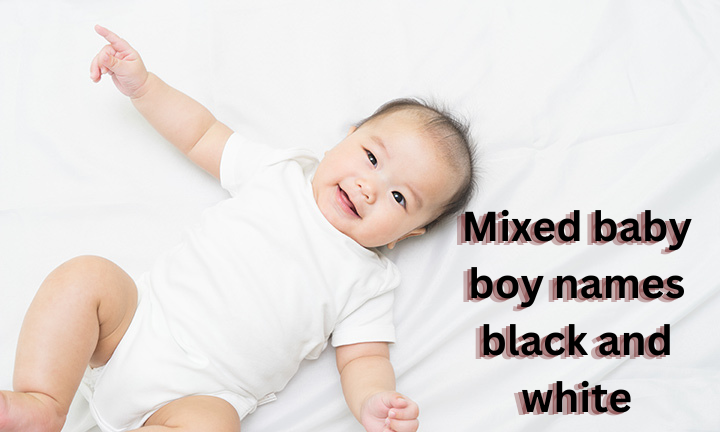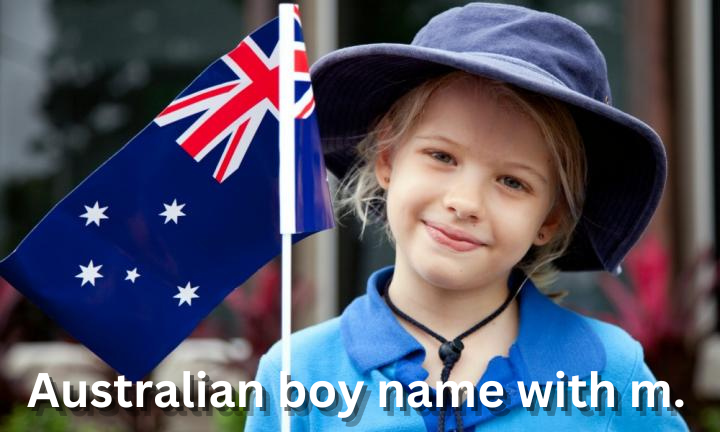Baby Names That Mean Misfortune
Choosing a baby name is a delightful yet daunting task for many parents. The name you give your child carries significant weight, as it can influence their personality, identity, and even destiny. While many parents seek names with positive connotations, some are intrigued by the deeper, sometimes darker, meanings behind names. In this article, we explore baby names that mean misfortune, delving into their origins, meanings, and cultural significance.
The Allure of Unusual Names
Before diving into the names themselves, let’s discuss why some parents might choose names with such ominous meanings.
- Unique Appeal: Names that mean misfortune are often unique and less common, setting a child apart from their peers.
- Cultural or Familial Significance: Some families have traditions of passing down names with strong meanings, regardless of their connotations.
- Literary and Historical Interests: Names with darker meanings might be chosen to reflect parents’ interests in literature, history, or mythology.
Now, let’s take a closer look at some of these intriguing names.

Names from Various Cultures
1. Mallory
- Origin: Old French
- Meaning: Unfortunate, ill-fated
- Background: Derived from an Old French nickname for an unfortunate person. Mallory has gained popularity in English-speaking countries as a surname-turned-first-name.
2. Trista
- Origin: Celtic
- Meaning: Sad, sorrowful
- Background: Trista is a feminine name that means “sorrow” and is the feminine form of the name Tristan.
3. Jabez
- Origin: Hebrew
- Meaning: Sorrow
- Background: In the Bible, Jabez is a biblical name that means sorrow and was named so because his birth was painful. Despite its meaning, the name carries a story of overcoming adversity.
4. Deirdre
- Origin: Irish
- Meaning: Sorrowful, sad
- Background: In Irish mythology, Deirdre was a tragic heroine whose story is filled with sorrow and misfortune, yet she remains a beloved character in Irish folklore.
5. Brenna
- Origin: Gaelic
- Meaning: Raven, associated with death
- Background: While ravens are often seen as ominous birds, the name Brenna has a haunting beauty to it.
6. Mara
- Origin: Hebrew
- Meaning: Bitter
- Background: In the Bible, Naomi changes her name to Mara to express her grief and bitterness after the death of her husband and sons.
7. Mallory
- Origin: Old French
- Meaning: Unfortunate
- Background: This name is often chosen for its unique appeal despite its meaning.
8. Tristan
- Origin: Celtic
- Meaning: Sad, sorrowful
- Background: Tristan is a legendary figure whose life was marked by sorrow, making the name synonymous with tragedy.
9. Rue
- Origin: English
- Meaning: Regret
- Background: Rue means regret or sorrow in English, and it gained popularity after the character Rue in “The Hunger Games” series.
10. Claudia
- Origin: Latin
- Meaning: Lame, crippled
- Background: Despite its meaning, Claudia has been a popular name throughout history, borne by many saints and royals.
11. Jezebel
- Origin: Hebrew
- Meaning: Not exalted
- Background: A negative biblical name meaning “not exalted,” often associated with a notorious biblical figure.
12. Persephone
- Origin: Greek mythology
- Meaning: Bringer of destruction
- Background: In Greek mythology, Persephone was the queen of the underworld, symbolizing both destruction and rebirth.
READ MORE :
First foods to feed your baby in 2024.
The Power of Names
Names carry immense power. They can shape perceptions, influence self-identity, and even affect how others see us. When choosing a name with a meaning related to misfortune, it’s essential to consider the cultural and personal significance.
Cultural Reflections
In many cultures, names with seemingly negative meanings are chosen to ward off evil spirits or bad luck. For instance:
- In some African cultures, children are given names with harsh meanings to protect them from harm.
- In parts of India, names that mean sorrow or pain are believed to confuse evil spirits, thereby protecting the child.
Personal Connections
Parents might choose a name with a dark meaning to honor a relative, a historical figure, or a character from literature. These names can carry rich stories and profound connections, turning their seemingly negative meanings into sources of strength and resilience.
Table of Baby Names That Mean Misfortune
Here’s a handy table summarizing the names we’ve discussed, along with their origins and meanings:
| Name | Origin | Meaning | Background |
|---|---|---|---|
| Mallory | Old French | Unfortunate | Surname-turned-first-name with a meaning of ill-fate |
| Trista | Celtic | Sad, sorrowful | Feminine form of Tristan, reflecting sorrow |
| Jabez | Hebrew | Sorrow | Biblical character named for his painful birth |
| Deirdre | Irish | Sorrowful, sad | Tragic heroine in Irish mythology |
| Brenna | Gaelic | Raven (death) | Name associated with the ominous bird |
| Mara | Hebrew | Bitter | Naomi’s self-given name to express her grief |
| Tristan | Celtic | Sad, sorrowful | Legendary figure with a tragic story |
| Rue | English | Regret | Name signifying regret, popularized by “The Hunger Games” |
| Claudia | Latin | Lame, crippled | Despite its meaning, a name borne by many historical figures |
| Jezebel | Hebrew | Not exalted | Negative biblical figure |
| Persephone | Greek mythology | Bringer of destruction | Queen of the underworld in Greek mythology |
Embracing the Unconventional
Choosing a baby name is a deeply personal decision. While names that mean misfortune may seem unconventional, they carry unique stories and cultural significance. By embracing these names, parents can connect their children to rich histories and imbue them with strength and resilience.
Encouraging Thought
When selecting a name, consider not just its meaning but also its sound, how it pairs with your last name, and its potential nicknames. Ultimately, a name is just one part of a person’s identity, and it’s the love and guidance they receive that truly shapes their destiny.
Additional Names and Meanings
Here are a few more baby names that mean misfortune, along with their origins and meanings:
| Name | Origin | Meaning | Background |
|---|---|---|---|
| Lilith | Hebrew | Night monster | Figure in Jewish folklore associated with the night |
| Melaina | Greek | Dark, black | Nymph in Greek mythology associated with sadness |
| Iblis | Arabic | Despair, evil | Islamic tradition’s name for the devil |
| Desdemona | Greek | Ill-fated | Shakespearean character whose name signifies misfortune |
| Dolores | Spanish | Sorrows | Common in Spanish-speaking cultures, reflecting sorrow |
A Deeper Dive into Cultural Names
- Jezebel (Hebrew): Means “not exalted,” and is often associated with a negative biblical figure.
- Persephone (Greek): This Greek name from mythology means “bringer of destruction,” symbolizing the duality of death and rebirth.
- Iblis (Arabic): Means “despair” or “evil,” and is a name often associated with the Islamic tradition of the devil.
Cultural Connections
Understanding the cultural context behind a name can add depth to its meaning. For example, many Hebrew names carry stories from the Bible, while Greek mythology provides a rich tapestry of characters with complex stories. Names from Latin origins often reflect ancient Roman history and traditions.
Biblical Names That Mean Misfortune
| Name | Origin | Meaning | Background |
|---|---|---|---|
| Jabez | Hebrew | Sorrow | Biblical character named for his painful birth |
| Mara | Hebrew | Bitter | Naomi’s self-given name to express her grief |
| Jezebel | Hebrew | Not exalted | Negative biblical figure |
| Ichabod | Hebrew | No glory | Biblical name indicating the loss of glory |
Baby Names That Mean Chaos or Trouble
| Name | Origin | Meaning | Background |
|---|---|---|---|
| Brutus | Latin | Heavy, slow, dull | Associated with betrayal, a name derived from the Latin word for heavy |
| Briar | English | Thorny bush | Can symbolize trouble or difficulty |
| Pandora | Greek mythology | All-gifted | Unleashed chaos in Greek mythology |
Tips and Tricks for Naming Your Baby
Naming your baby can be challenging, but these tips can help make the process smoother:
| Tip | Description |
|---|---|
| Consider Cultural Significance | Research the cultural and historical background of the name. |
| Think About Nicknames | Ensure the name has pleasant or manageable nicknames. |
| Pronunciation and Spelling | Choose a name that’s easy to pronounce and spell. |
| Meaning Matters | Reflect on the meaning and whether it resonates with you and your family values. |
| Test the Name | Say the name out loud with the last name to see how it sounds together. |
Embracing the Unconventional
Choosing a baby name is a deeply personal decision. While names that mean misfortune may seem unconventional, they carry unique stories and cultural significance. By embracing these names, parents can connect their children to rich histories and imbue them with strength and resilience.
Encouraging Thought
When selecting a name, consider not just its meaning but also its sound, how it pairs with your last name, and its potential nicknames. Ultimately, a name is just one part of a person’s identity, and it’s the love and guidance they receive that truly shapes their destiny.
Further Reading
If you’re fascinated by names and their meanings, check out these related articles:
By exploring these diverse names, you can find the perfect one that resonates with your heart and honors your heritage.
Frequently Asked Questions (FAQ)
| Question | Answer |
|---|---|
| Why choose a name that means misfortune? | These names can be unique and carry rich cultural or personal significance. |
| Are these names appropriate for a baby? | Yes, as long as the parents feel a connection and the name fits their values. |
| Can the meaning of a name affect my child? | Names can influence perceptions, but a loving environment shapes a child’s true character. |
| How do I explain the meaning to others? | Share the cultural or personal story behind the name to give it a positive context. |
| Are there positive nicknames for these names? | Yes, many of these names have pleasant or neutral nicknames that can be used in daily life. |
Conclusion
Choosing a baby name is a deeply personal and significant decision. While names that mean misfortune may seem unconventional, they often carry unique stories and cultural significance. By embracing these names, you can connect your child to rich histories and imbue them with strength and resilience.
When selecting a name, consider not just its meaning but also its sound, how it pairs with your last name, and its potential nicknames. Ultimately, a name is just one part of a person’s identity, and it’s the love and guidance they receive that truly shapes their destiny.
If you’re fascinated by names and their meanings, explore various sources and consider the cultural and personal connections each name might offer. Your choice will reflect your values, heritage, and hopes for your child’s future.
Thank you for reading! This article was brought to you by the Viderom








Pingback: Infant And Toddler Feeding From Birth To 23 Months: Making Every Bite Count. - Babyfow.com